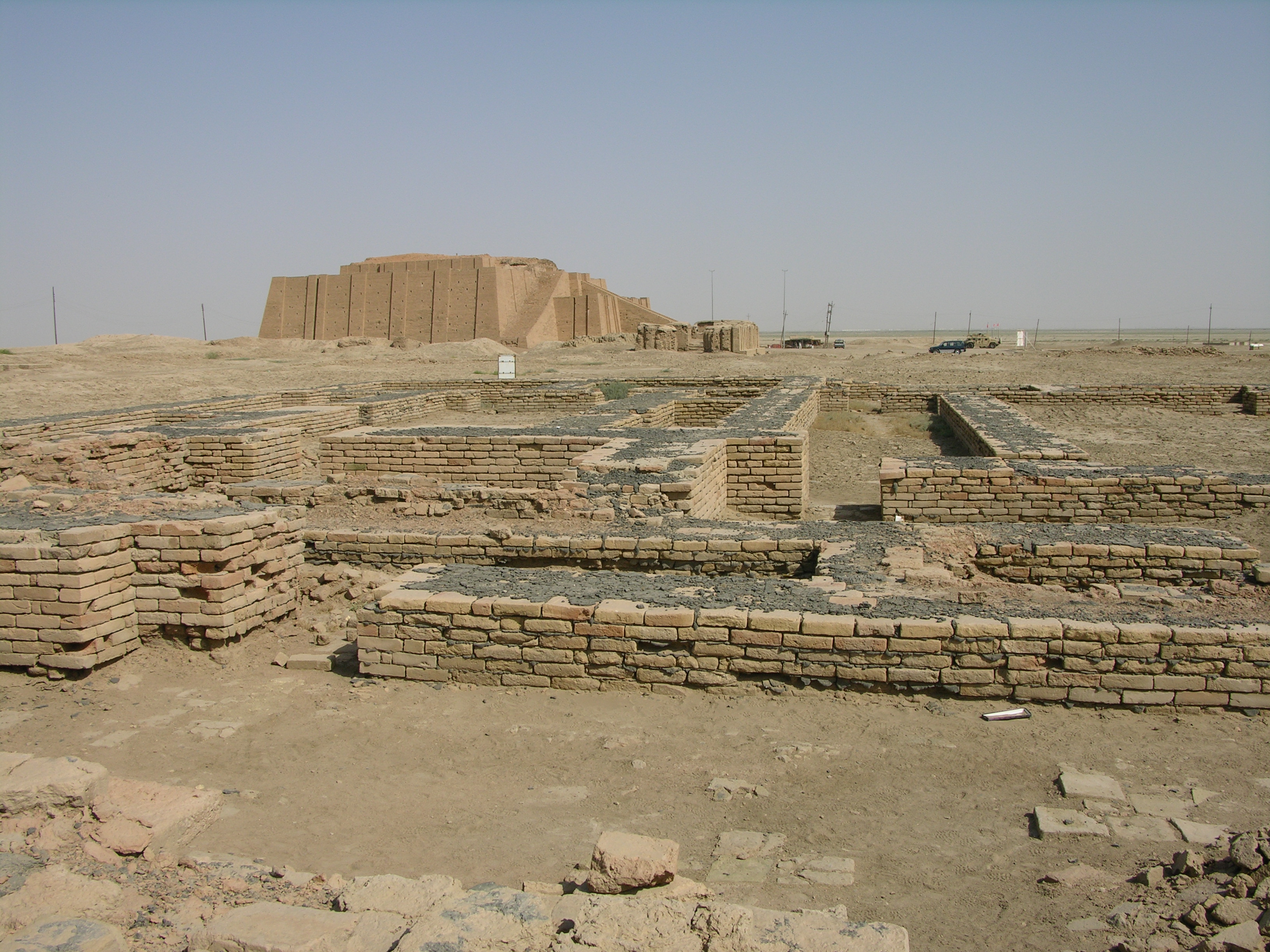Harvesting grain;
ancient Egyptian hieroglyph
Agricultural
societies succeeded hunter-gatherer ones, and values such as patience,
foresight, diligence, and perseverance quadrupled in importance. These values, which
farming requires, would not replace the hunter-gatherers’ values totally and
immediately, but the farmers’ values and their way of life grew until they, in
their multiplying societies, had largely made the old values obsolete. The new
agricultural way of life was just better at making more humans over the
generations.

Ruins of Ur, ancient Mesopotamian city
When
hard grains that could be stored indefinitely were domesticated, towns were
formed as an efficient way to store the community’s food wealth in a central,
defensible site. Of course, the progress from stage to stage had many
recursions. Nomadic tribes with little food and plenty of aggression to spare
were lurking, and the most aggressive of these tribes might for a time
subjugate and exploit the city dwellers. Two ways of life tested themselves
against each other. But in the end, the city dwellers won.
Inside
a city’s defenses, governing bodies with administrative offices became
necessary to ensure fair distribution of the tribe’s food and to organize the
tribe’s members in ways that brought domestic order and protection from invaders.
Following them came craftsmen and merchants who found a protected, central site
with a large population more conducive to the practice of their arts than a rural
setting.
A potter in action at a potter’s wheel
Cities
and their ways proved fitter for economic progress than decentralized farm
communities or nomadic tribes. More citizens working in increasingly
specialized skilled tasks helped to increase the population. Values shifted
toward making all citizens comfortable while they functioned in densely
populated neighborhoods, causing the rise of behaviors that encouraged
citizens to respect their neighbors’ property. Don’t bear false witness
against your neighbor and don’t covet the things he has in his yard next door.
The Bible directed believers not to covet their neighbors’ goods because envy leads
to friction and then violence.
A
city’s laws expanded on the farmer’s rough guidelines for living in a thinly
populated farming community of familiar faces. The laws prescribed more
precisely what kinds of behaviors were acceptable in nearly all activities of
city life. Urban crowding requires more civility. Even the word law came to be associated with reverent
feelings (e.g., for Socrates7).
Most
of all, the city had at its immediate beck and call large numbers who could
fight off an enemy attack. Successful cities even progressed to the point where
they could even afford to keep, feed, arm, and train full-time soldiers,
professionals who were capable of outfighting almost any swarm of invading amateurs.
The farmers remaining in the hinterland moved closer to the city because life
was better there. Just one generation of life in or near the city taught citizens
to be patriotic to their new stat. Programming that survived made loyalty to one’s
city-state automatic; patriotism is a virtue conducive to the city-state’s
survival. Away from their city, morés, and values, people came to feel that
there was no truly human life.
Urn showing
blacksmith at work in ancient Greece
Literacy,
metals, machines, and the technologies of industry, communications, and
computers all brought values shifts to the nations in which they first arose.
When the ways of life they fostered proved more vigorous than those of nearby
competing societies, the values shifts, morés, and behavior patterns that rose
up with the new technologies were eventually adopted by those other societies
(usually with accompanying revolutions, nonviolent or violent). Of course,
societies that resist these shifts in values and behaviors must find or create
competing alternative behavior-generating programs within their own cultures,
programs that are equally effective in the cultural-evolution game. Or they get
overrun.
No comments:
Post a Comment
What are your thoughts now? Comment and I will reply. I promise.